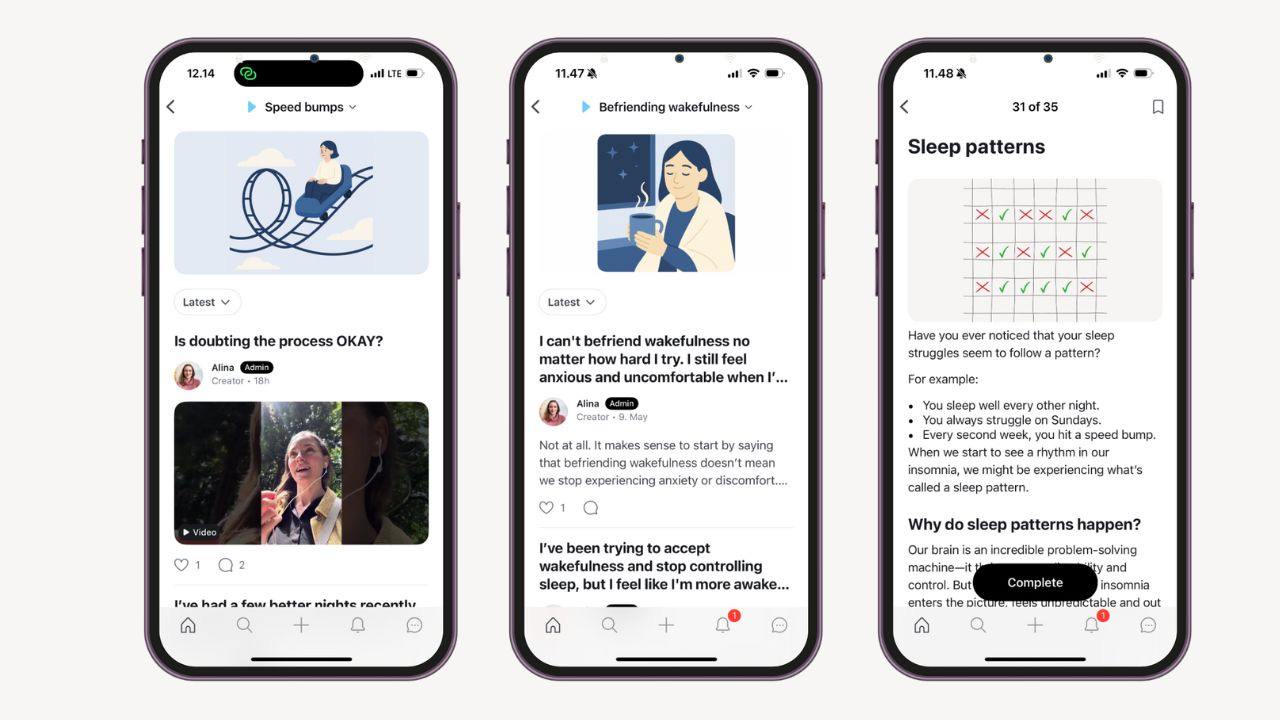Hi there! Before we dive into today’s topic, I’m really excited to share something with you:
Earlier this week, I officially opened the Fearless Sleep Library to the public!
The first group of members has already joined, and it’s been so heartening to see it come to life. ❤️
It looks like the Library will be the big focus of my work moving forward. That said, I’m still committed to sharing publicly available content too – but this space is something special.
If you’re curious about what the Library actually is, feel free to explore:
And if it feels like the right place for you – you are more than welcome to join. ❤️
Let’s get back to the topic…
So, how the heck do we navigate recovery when it feels like no one around us truly understands insomnia and sleep anxiety?
It’s not uncommon for a client to tell me something like: “I had a conversation with my partner/colleague/therapist and they said something that really triggered me and made me doubt my process.”
Maybe it was a comment about how “important it is to fix your sleep,” or another suggestion to try some new sleep effort. Sometimes it’s pity. Sometimes it’s a well-meaning “Are you getting better finally?”
Even when it comes from a kind place, it can sting. 💔
Because in that moment, we’re reminded just how invisible this experience can be to others.
When the people around us don’t get it – when they see insomnia as a simple sleep issue rather than the complex relationship we’re working to untangle – it can feel lonely.
But here’s what’s true: we’re not doing anything wrong. We’re just navigating something that’s deeply misunderstood and complex. And it’s okay if most people don’t fully get it.
Truthfully, many won’t – and that doesn’t mean recovery is impossible.
When I struggled with insomnia, two of my therapists didn’t really get it. None of the doctors I saw understood either – they just shrugged 🤷. Colleagues were puzzled, sometimes offering me another supplement to try. Even people in my closest circle didn’t quite get it.
This isn’t a failure of our environment. It’s just part of the territory.
And this doesn’t have to be an obstacle to recovery. Recovery is possible even if the people around us don’t fully understand. So, what can help?
First: acceptance. It helps to come to terms with the fact that most people won’t get it – and that’s okay. They don’t have to, and we aren’t dependant on them.
Second: we can allow ourselves to get triggered.
Would it be nice to never hear something that adds pressure or doubt? Of course. But that’s not how life works. You might hear something from a loved one, a podcast, a movie, or even just your own thoughts that stirs something up.
That’s not a problem. It’s okay to feel discomfort.
If something someone says triggers anxiety, we can just notice it. Let’s just feel it the best way we can without judgement.
We didn’t choose that reaction – it just happened. And it’s safe. It’s not here to set us back. If anything, it’s an opportunity to show ourselves that we can be with discomfort, and still be fine.
Recovery doesn’t require the world around us to change. It just asks us to stay with ourselves through the hard moments – with courage and kindness. To walk toward the emotions instead of shrinking our life to avoid them. To keep showing up, even when it’s hard.
You’ve got this ❤️
Alina





Another great post. We are not seeking sympathy but hopefully understanding . One of the most helpful things is the reassurance that emerges from other peoples experience and journey. Your posts and videos provide this. You make a difference.
Great post ❤️